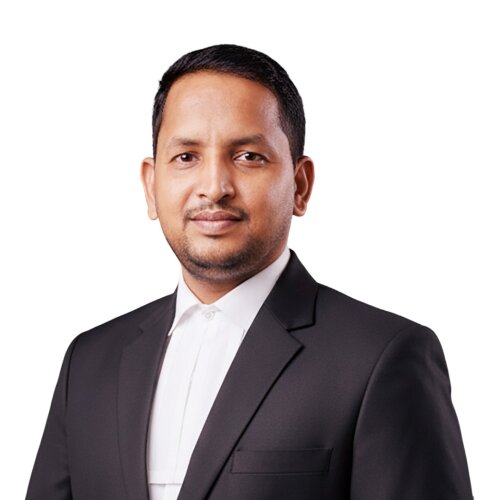Best Constitutional Law Lawyers in Ayodhya
Share your needs with us, get contacted by law firms.
Free. Takes 2 min.
List of the best lawyers in Ayodhya, India
About Constitutional Law in Ayodhya, India:
Constitutional Law in Ayodhya, India refers to the body of laws and regulations that govern the rights and responsibilities of individuals, institutions, and the government as outlined in the Indian Constitution. It covers issues such as fundamental rights, the structure of government, and the distribution of powers between the central and state governments.
Why You May Need a Lawyer:
You may need a lawyer specializing in Constitutional Law in Ayodhya, India for various reasons, such as challenging a government action that you believe violates your constitutional rights, seeking redress for a violation of fundamental rights, or navigating complex legal issues related to constitutional interpretation.
Local Laws Overview:
In Ayodhya, India, local laws relevant to Constitutional Law include the Uttar Pradesh State Constitution, which may impact how certain constitutional provisions are applied within the state. Additionally, local court decisions and legal precedents play a role in shaping Constitutional Law in Ayodhya.
Frequently Asked Questions:
1. What are fundamental rights in the Indian Constitution?
Fundamental rights are essential rights guaranteed to all citizens by the Indian Constitution, including the right to equality, freedom of speech and expression, and the right to constitutional remedies.
2. Can I challenge a government decision that I believe violates my constitutional rights?
Yes, you can challenge a government action in court if you believe it violates your constitutional rights. A lawyer specializing in Constitutional Law can help you navigate this process.
3. How does the Indian Constitution protect minority rights?
The Indian Constitution includes provisions to protect the rights of minorities, such as the right to establish and administer educational institutions of their choice.
4. What is the role of the Supreme Court in interpreting the Indian Constitution?
The Supreme Court of India is the highest judicial authority in the country and has the power to interpret the provisions of the Indian Constitution to ensure their proper implementation.
5. How can I file a public interest litigation (PIL) related to Constitutional Law issues?
To file a PIL related to Constitutional Law issues, you can approach the appropriate court with the help of a lawyer specializing in public interest litigation.
6. What are the limitations on freedom of speech and expression in the Indian Constitution?
While the Indian Constitution guarantees the right to freedom of speech and expression, there are certain limitations to this right, such as restrictions on hate speech and defamation.
7. What is the procedure for amending the Indian Constitution?
The procedure for amending the Indian Constitution is outlined in Article 368 and requires a special majority in both houses of Parliament or a special majority of state legislatures, depending on the nature of the amendment.
8. How does the Indian Constitution protect the rights of women and children?
The Indian Constitution includes provisions for the protection of women and children's rights, such as the prohibition of discrimination on the basis of gender and safeguards against child labor.
9. What is the jurisdiction of the High Court in matters related to Constitutional Law?
The High Court has jurisdiction to hear cases related to constitutional matters, including violations of fundamental rights and disputes involving state governments.
10. How can I stay informed about recent developments in Constitutional Law in Ayodhya, India?
You can stay informed about recent developments in Constitutional Law by following legal news websites, attending seminars and conferences, and seeking guidance from legal experts in the field.
Additional Resources:
For additional resources related to Constitutional Law in Ayodhya, India, you may consider contacting the National Human Rights Commission, the Ministry of Law and Justice, or local Bar Associations for legal assistance and information.
Next Steps:
If you require legal assistance in Constitutional Law in Ayodhya, India, consider consulting with a lawyer specializing in constitutional matters to discuss your case and explore your options for seeking redress for any violation of your constitutional rights.
Lawzana helps you find the best lawyers and law firms in Ayodhya through a curated and pre-screened list of qualified legal professionals. Our platform offers rankings and detailed profiles of attorneys and law firms, allowing you to compare based on practice areas, including Constitutional Law, experience, and client feedback.
Each profile includes a description of the firm's areas of practice, client reviews, team members and partners, year of establishment, spoken languages, office locations, contact information, social media presence, and any published articles or resources. Most firms on our platform speak English and are experienced in both local and international legal matters.
Get a quote from top-rated law firms in Ayodhya, India — quickly, securely, and without unnecessary hassle.
Disclaimer:
The information provided on this page is for general informational purposes only and does not constitute legal advice. While we strive to ensure the accuracy and relevance of the content, legal information may change over time, and interpretations of the law can vary. You should always consult with a qualified legal professional for advice specific to your situation.
We disclaim all liability for actions taken or not taken based on the content of this page. If you believe any information is incorrect or outdated, please contact us, and we will review and update it where appropriate.








